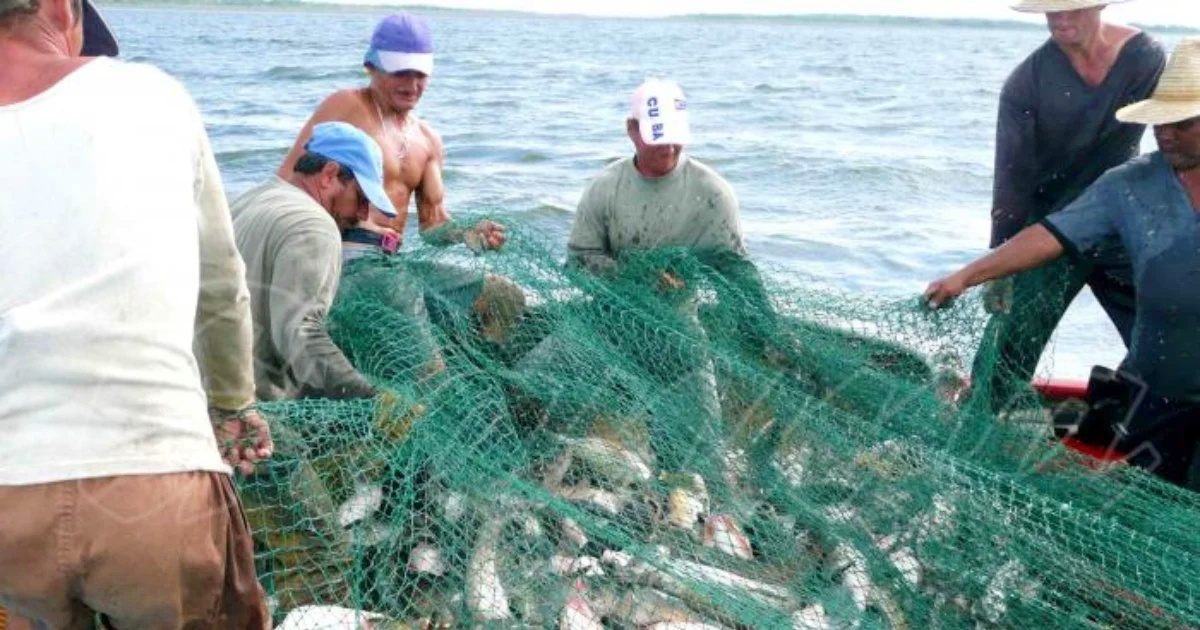The Cuban government has announced a new initiative aimed at promoting sustainable fishing and protecting biodiversity along its coasts, in collaboration with the Food and Agriculture Organization of the United Nations (FAO).
This project, funded with $1.3 million from the Global Environment Facility (GEF), was unveiled on Tuesday by state-run media as a significant step towards environmental sustainability in the fishing sector.
Conpescas Guacanayabo: Strengthening Fishing Research
The Conpescas Guacanayabo project, part of this initiative, aims to bolster the capabilities of the Fisheries Research Center (CIP) and the technical departments of fishing companies operating in the Gulf of Guacanayabo, located along the southeastern coast of the provinces of Granma, Camagüey, and Las Tunas.
According to a statement released on its website, FAO's declared objectives include the sustainable management of marine resources and the promotion of environmentally friendly fishing practices in Cuba.
However, in a country where access to basic food items—including fish—is limited and where the population faces a severe food crisis, questions arise about how much the citizens will truly benefit from this $1.3 million investment.
While the Cuban government celebrates this project as a move towards sustainability, the reality is that the average Cuban has very limited access to seafood due to scarcity and high prices, exacerbated by an inefficient distribution system.
The initiative includes the acquisition of sophisticated equipment such as georeferencing systems, tools for measuring physical-chemical and oceanographic parameters, and diving gear for marine studies.
Although these resources are crucial for research and long-term sustainability, it is legitimate to question whether these investments will have a tangible impact on the Cubans' access to more fish or a more varied diet.
The project also aims to enhance the capacities of laboratories with microscopes, scales, reagents, and refrigeration equipment, all geared towards improving the monitoring and control of aquatic diseases and the quality of marine resources.
The pressing question remains: How effective will this investment be in improving the quality of life for Cubans when most still cannot access these resources due to widespread restrictions and shortages?
Cuba was one of the founding nations of the FAO in 1945 and has maintained a close relationship with the organization, especially since setting up an official representation in Havana in 1978.
Areas of cooperation have included agribusiness, sustainable agriculture, social inclusion, aquaculture, and climate change. However, despite these projects and collaborations, the reality at the dinner table for Cubans has changed little.
The push for more sustainable fishing is undoubtedly a commendable goal, but it is imperative that Cuban authorities consider how these efforts can translate into real, tangible benefits for a population still waiting for solutions to the ongoing food crisis.
Environmental sustainability should not be divorced from social sustainability, and the success of this project should ultimately be measured by its direct impact on Cubans' access to essential foods like fish.
Questions About Cuba's Sustainable Fishing Initiative
In light of Cuba's new sustainable fishing project, several key questions arise regarding its implementation and impact on the local population. Here are some frequently asked questions and their answers:
What is the primary goal of the Conpescas Guacanayabo project?
The primary goal is to strengthen the capabilities of the Fisheries Research Center (CIP) and the technical departments of fishing companies in the Gulf of Guacanayabo to promote sustainable fishing practices and protect marine biodiversity.
How will the $1.3 million funding be utilized?
The funding will be used to acquire advanced equipment like georeferencing systems, tools for measuring physical-chemical and oceanographic parameters, diving gear, and laboratory equipment to enhance research and monitoring capabilities.
Will this project improve Cuban citizens' access to seafood?
While the project aims to promote sustainable fishing, it remains uncertain whether these investments will directly improve access to seafood for the average Cuban, considering the existing scarcity and high prices.
